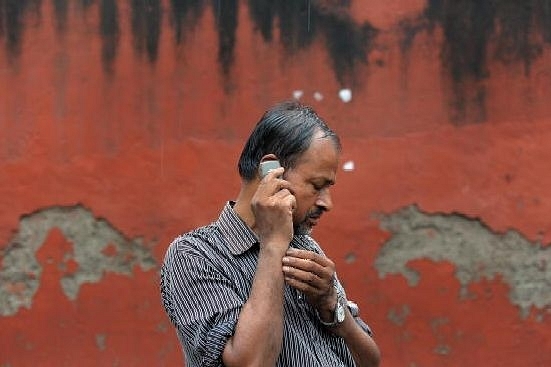Business
India’s Telecom Sector Is A Case-Study For Everything That Must Not Be Done
- How India’s telecom sector became a case-study for political economy enthusiasts and those who study regulatory overreach.

India Telecom (MANAN VATSYAYANA/AFP/Getty Images)
The problem with telecom sector originated the moment it began to be viewed as a cash-cow for the government in terms of raising its non-tax revenues. The vibrant sector appeared as a solution to raise revenue without having to privatise or disinvest existing public sector enterprises.
The first blow for the sector came when there were reports of corruption as far as allocation of spectrum licenses are concerned.
There was indeed an executive failure and perhaps, corruption was indeed involved – however, the decision to cancel existing licenses was perhaps too radical a step which ignored the economic consequences of the decision.
This decision by the judiciary had a significant impact on the telecom sector and more importantly, on the auctions of 3G and 4G spectrum as telcos were left with limited resources for bidding.
Many of them went to banks to raise adequate debt.
Indeed, selling spectrum for a significantly lower price than value is not an optimal decision as it results in revenue forgone and artificially creates higher than normal private profits in the sector.
However, for natural resources, it is difficult to arrive at the fair value and therefore auctions seem like a mechanism through which value can be identified through revealed preferences of the firms.
But, here’s the important question based on India’s recent experience with spectrum auctions: Should profits or rents from natural resources be completely held with the private sector or the public sector?
This is important as though we may assume capital to be indifferent to who holds it but, it does matter. By stripping telcos of any ability to withstand an exogenous shock we even took away their ability to expand to other global markets.
Therefore, we effectively curtailed the growth of our industry which could have emerged as a global leader.
The second problem was with respect to handling of dirt-cheap pricing by a new entrant in the industry that led to concentration of market power.
Globally, telecom sector is dominated by a few telecom players as it brings about efficiency through the scale of operations but in India, we had many small players – so indeed, some concentration was likely to happen.
However, concentration due to low pricing of the kind we saw in India and concentration due to an organic process are two different things.
The problem at hand is that now the sector has become like an oligopoly with three players – one of which is the leader while the other two follow the pricing decision of the leader.
In the absence of strong anti-trust laws, we may soon look at collusion as far as pricing etc is concerned. Not that collusion doesn’t happen elsewhere in the telecom industry, it does. But a systemic increase in telecom prices over the next 5 years should signal that the end of low-price telecom and data regime is over.
In purchasing power parity terms, India’s telecom prices must be the same as other countries to ensure a vibrant and growing industry and we’re gradually moving there. However, the moment it starts moving beyond this level, then we’ve got a problem of inefficiency or of rent-seeking from the market power of these three firms.
But why have prices suddenly increased?
The answer to this is the AGR judgement and the need for the sector to generate adequate profits to meet their prior commitments.
In other words, because the telecom companies owe the government money, they will increase prices and pay them through increased profits.
There’s a lesson to be learnt here – never to try to extract the complete rent or surplus from private sector that rely on allocation of natural resources as it only destabilizes the sector and takes away its ability to absorb any exogenous shocks.
The telecom sector has faced these issues since the time of UPA and one hopes that as we move towards a rule-based regime, such issues will not resurface in the future. But in the immediate short-term, there’s a definite case to give the telecom sector additional support to strengthen their financial position.
Support Swarajya's 50 Ground Reports Project & Sponsor A Story
Every general election Swarajya does a 50 ground reports project.
Aimed only at serious readers and those who appreciate the nuances of political undercurrents, the project provides a sense of India's electoral landscape. As you know, these reports are produced after considerable investment of travel, time and effort on the ground.
This time too we've kicked off the project in style and have covered over 30 constituencies already. If you're someone who appreciates such work and have enjoyed our coverage please consider sponsoring a ground report for just Rs 2999 to Rs 19,999 - it goes a long way in helping us produce more quality reportage.
You can also back this project by becoming a subscriber for as little as Rs 999 - so do click on this links and choose a plan that suits you and back us.
Click below to contribute.
Latest